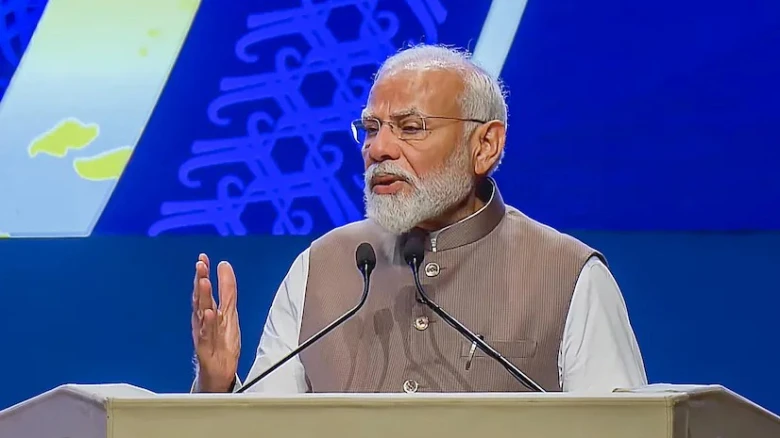PM Modi would join the ranks of Prime Minister Jawaharlal Nehru as one of the few leaders to secure three consecutive terms...
Digital Desk: Prime Minister Narendra Modi is setting his sights high for India's economic future, with an ambitious target of doubling the economy and exports by the end of the decade. According to a government document reviewed by Reuters, PM Modi aims to propel India to become the world's third-largest economy if he secures a third consecutive term in the upcoming national elections.
Economic growth has been a cornerstone of PM Modi's leadership, and he has consistently emphasized its importance in his election campaigns. He has pledged to boost the economy from its current fifth-largest position to the third-largest globally, promising significant expansion if re-elected.
The government document outlines a plan to elevate India's nominal GDP to $6.69 trillion by 2030, nearly doubling its current size. While specific strategies to achieve this goal are not yet detailed, the document serves as a foundation for discussions among officials.
PM Modi faces the challenge of reviving an economy that has been impacted by the COVID-19 pandemic. Despite his previous pledge to reach a $5 trillion economy by the current fiscal year, disruptions caused by the pandemic have made this target unattainable.
The roadmap for the next decade includes raising per capita income to $4,418 from approximately $2,500, but the document lacks clarity on the necessary spending and reforms. Economists like Saugata Bhattacharya caution that achieving such growth targets would require sustained annual growth rates of 6-6.5% over the next seven years, coupled with controlled inflation.
While India's economy showed resilience with an estimated 8% growth rate in the last fiscal year, former finance ministry official Subhash Chandra Garg highlights the need for substantial reforms and investment plans to support ambitious growth projections.
The opposition Congress party has criticized PM Modi's economic policies, arguing that economic growth has not translated into job creation or rural development, exacerbating income inequality. However, PM Modi's government aims to double exports to $1.58 trillion by 2030, potentially increasing India's share in global trade.
To achieve these economic milestones, the government plans to address 70 areas of improvement, including workforce skills, vocational training, literacy rates, and unemployment. PM Modi has stressed the importance of remaining in power to implement measures aimed at transforming India into a developed economy by 2047, the 100th anniversary of Independence.
Opinion polls indicate strong support for PM Modi and his Bharatiya Janata Party (BJP) in the upcoming elections, with projections suggesting a landslide victory. If successful, PM Modi would join the ranks of Prime Minister Jawaharlal Nehru as one of the few leaders to secure three consecutive terms.
As India navigates its path towards economic growth and development, PM Modi's ambitious goals represent both opportunities and challenges. Whether he can deliver on his promises will depend on the implementation of comprehensive reforms and sustained efforts to address structural issues within the economy.

Leave A Comment